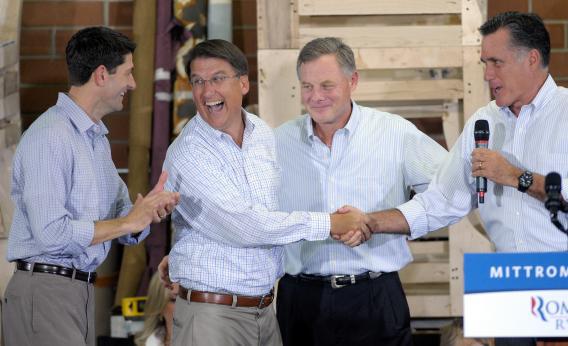Art Pope has been quietly finessing the North Carolina politics for years; only now he has the added bonus of working in the governor’s office as deputy budget director for Gov. Pat McCrory. Pope, a founding member of Americans for Prosperity, has been called the most influential donor in the state, and served as a pro bono legal adviser to the state legislature during its 2010 redistricting push.
The Charlotte Observer has a great rundown of conservative agenda-setters in the state, including two think tanks that Pope led before assuming his new job:
The Civitas Institute offers what its president, Francis DeLuca, calls an “intellectual underpinning” for a variety of issues including regulatory and voting changes.
For example, the group wanted to end straight-ticket voting and even early registration for 16- and 17-year-olds. Both found their way into a sweeping election law overhaul signed by the governor.
“I’d like to think we had a little hand in it,” DeLuca says.
Despite that smugness from state lobbying shops, the American Legislative Exchange Council, and its ilk, some national conservative leaders are pushing back on the voter ID law. At an event last week, Colin Powell derided the voter ID legislation just after McCrory left the stage: “It immediately turns off a voting bloc the Republican Party needs,” Powell said. “These kinds of actions do not build on the base. It just turns people away.”
